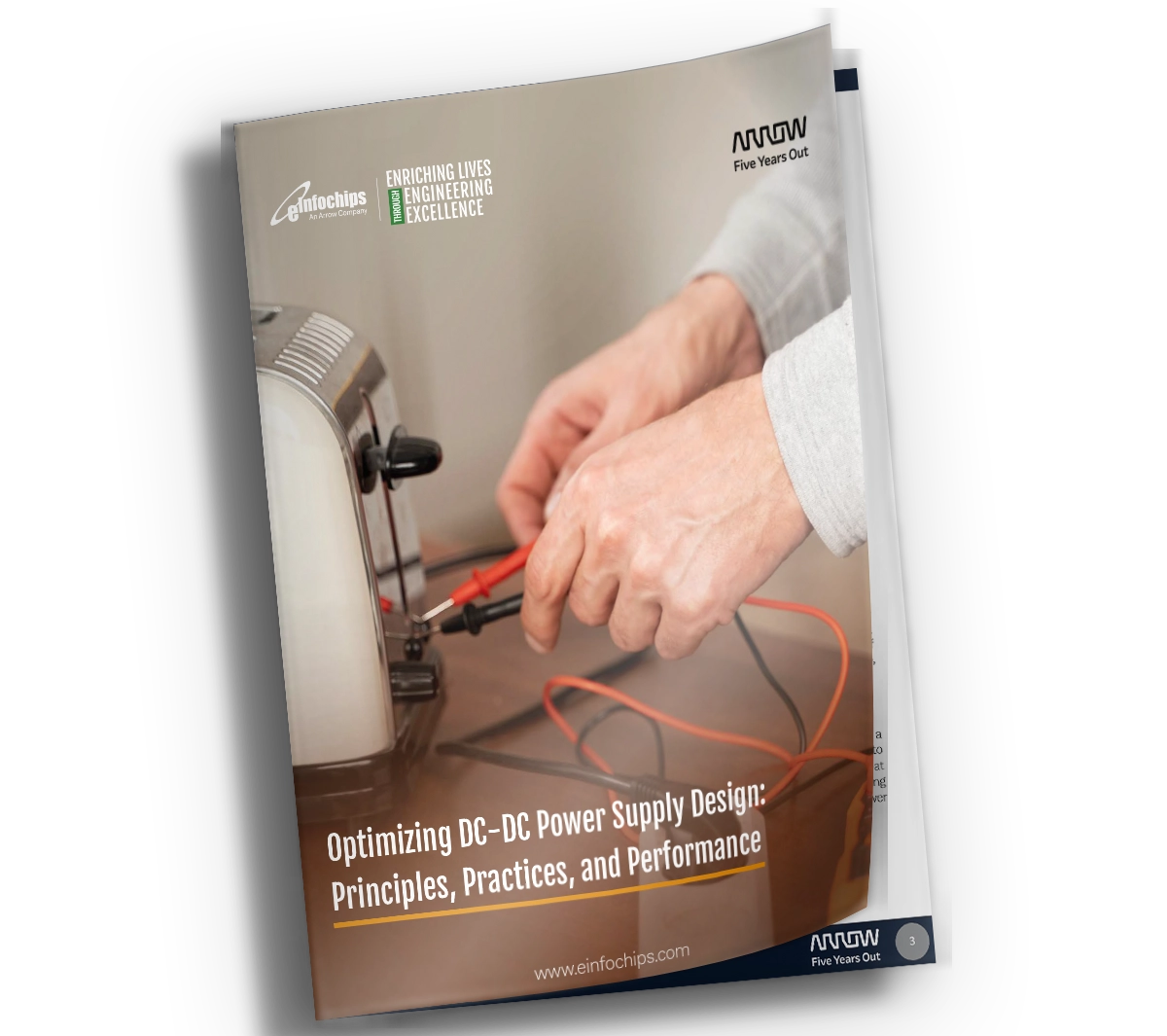Description
This white paper explores the principles, practices, and performance optimization of DC-DC power supply design, crucial in converting direct current from one voltage level to another. DC-DC converters are essential in a wide range of electronic systems, including microprocessors, data centers, and telecommunication equipment. Efficiency, voltage regulation, and thermal management are key factors for ensuring reliable power delivery across devices with varying power requirements. Through well-designed converters, the system’s performance can be improved with minimal energy loss and compact components.
The paper further delves into selecting the right converter IC, understanding different converter topologies (buck, boost, buck-boost, inverting), and minimizing losses in MOSFETs, inductors, and capacitors. It emphasizes the impact of high-switching frequencies on component size and efficiency, as well as the importance of thermal management and component placement on PCBs. It provides a comprehensive guide on optimizing DC-DC power supply designs for better performance, ensuring stable, efficient operation across different applications.
Project Highlights

DC-DC converters ensure voltage stability and reliability
Topology choice (buck, boost, buck-boost) based on input-output needs
Minimize MOSFET losses with optimized switching
Reduce inductor/capacitor losses using low DCR and ESR
Higher frequencies shrink components but may increase losses
Optimize layout to reduce noise and improve efficiency





